By: Christopher James
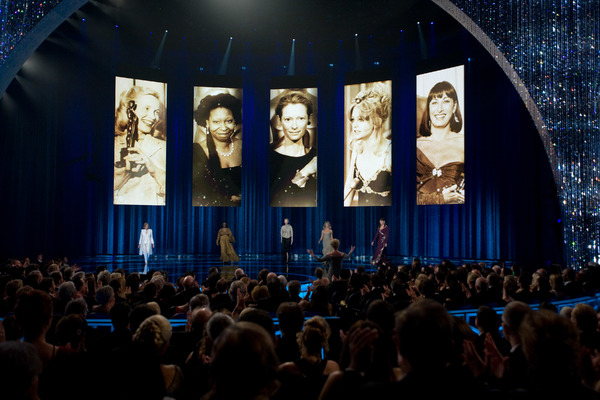 Screw the MCU, this is the greatest crossover event in history.
Screw the MCU, this is the greatest crossover event in history.
In a quest to get to three hours, the Academy has attempted to shave off so many things that make the Oscars great, including eight categories. As Nathaniel eloquently noted, the Oscars are best when they embrace the excess, full of clips, montages and moments to celebrate the nominees and the art of moviemaking in general. One of the best examples of this came during the 2008 Oscars, hosted by Hugh Jackman. Yes, Jackman was a great host with multiple fantastic dance numbers, including a bit about how “he didn’t see The Reader” and declaring the musical is back. There was one other major thing that was incredible about that particular Oscar ceremony: the presentation of the acting awards. Murtada also looked back on this wonderful moment a couple years back as well. These Oscars were not afraid of taking their time. In addition to clips, a different winner from a previous year introduced each acting nominee. The producers for that year didn’t just pick former winner names out of a hat, they found some thematic connection between the nominee and the former winner, as if to say that everyone has a chance. It was an exciting way to accentuate the legacy of the Oscars, honor each nominee and make the event even more star studded than normal.
Let's fantasize about that happening again...
Who would be cast?
I’ve tried to limit myself to a few rules to give the ceremony the maximum starpower for fanatics and casual viewers alike:
-
The presenter must have won that exact category (a Best Actor winner can only present Best Actor)
-
The presenter must not be nominated this year, thus people like Javier Bardem, Olivia Colman, Penelope Cruz, Judi Dench, Nicole Kidman, J.K. Simmons and Denzel Washington would not qualify.
-
All four winners from last year will present - Anthony Hopkins, Frances McDormand, Daniel Kaluuya, and Youn Yuh-jung
BEST ACTOR
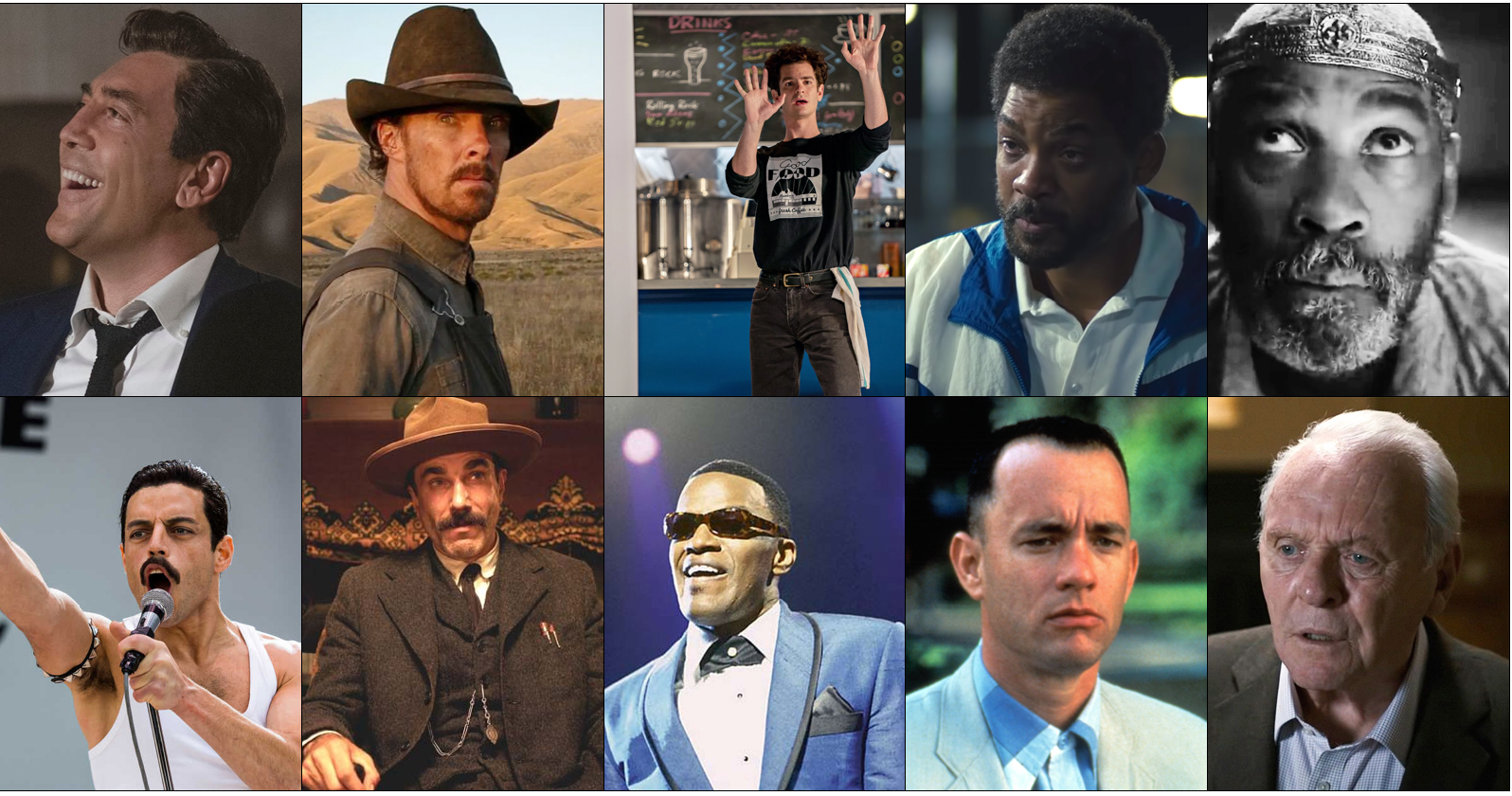
Javier Bardem for Being the Ricardos, introduced by Rami Malek (2018’s winner for Bohemian Rhapsody)
Does anyone want to be reminded of Malek’s Oscar win? No.
Would it be fun for one Bond villain to introduce another? Yes.
Plus, he could maybe do a joke on how Bardem did more singing as Desi Arnaiz than he did as Freddy Mercury. Okay, I agree, too soon.
Benedict Cumberbath for The Power of the Dog, introduced by Daniel Day-Lewis (2006’s winner for There Will Be Blood)
The easiest connection one could use for Cumberbatch would be to search for the last Best Actor winner from a western. We could make that stretch to Jeff Bridges for Crazy Heart, but that doesn’t feel like the best fit. Instead, Cumberbatch’s Phil Burbank shares cruel DNA with Day-Lewis’ frightening Daniel Plainview. While some of the other Best Actor introductions would be co-star reunions or bits, this could be a genuinely great tribute to Cumberbatch’s incredible performance.
Andrew Garfield for tick, tick… Boom!, introduced by Jamie Foxx (2004’s winner for Ray)
While there are quite a few women who have won Best Actress for musicals (Andrews, Streisand, Stone, to name some living examples), the number is much less for actors. The last example would be Jamie Foxx, who won for the biopic Ray. While not quite a musical, both Ray and tick, tick… Boom! Involve playing a real person. Also, this could be one way to acknowledge Spider-Man: No Way Home.
Will Smith for King Richard, introduced by Tom Hanks (1994’s winner for Forrest Gump)
Will Smith’s journey from marquee action star to overdue dramatic actor is a transition few could pull off. While King Richard’s box office wasn’t stellar (likely due to the simultaneous HBO Max launch), Smith is still one of the few blockbuster movie stars out there. Only a movie star can present to a movie star. Tom Hanks has spent the past three decades at the top of the A-list. Before the 90s, he was a B-list comic actor who had the right string of hits that led him to his inimitable career. Seeing Hanks introduce likely winner Will Smith would surely be a memorable TV moment.
Denzel Washington for The Tragedy of Macbeth, introduced by Anthony Hopkins (last years’ winner for The Father)
Yes, in this scenario last year’s winners have to be included. The task of introducing Denzel Washington can go to only a few people. However, Hopkins could be up to the task. Both Washington and Hopkins have won Oscars for playing frightening villains (Training Day and Silence of the Lambs). Additionally, Macbeth is the story of a man haunted by his actions, driven mad with power. While The Father deals with a very different sort of mental trauma, both Washington and Hopkins use their considerable talents to feel inside their character’s minds.
BEST ACTRESS
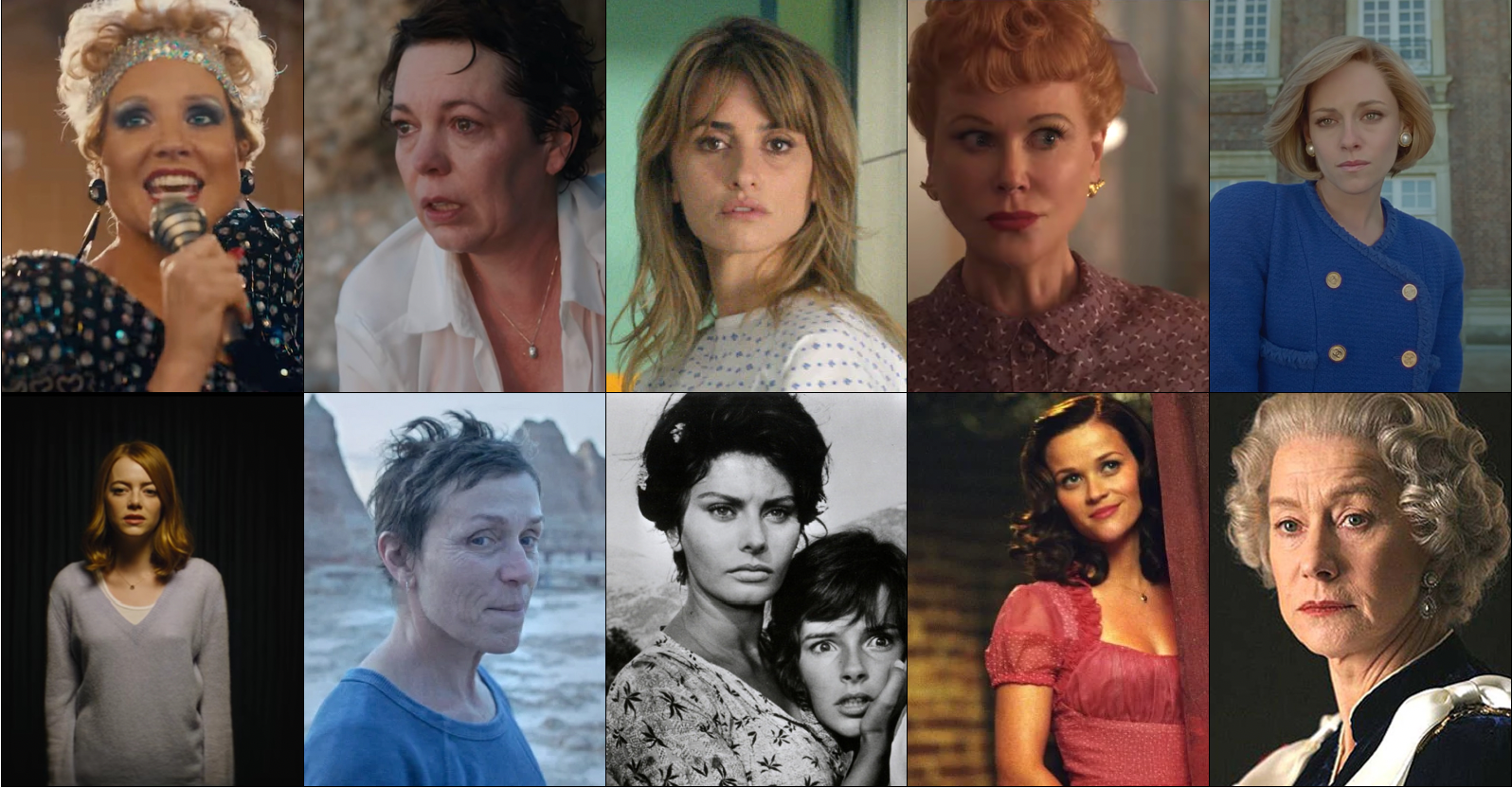
Jessica Chastain for The Eyes of Tammy Faye, introduced by Emma Stone (2016’s winner for La La Land)
Are we doing a reunion for The Help in the year of our Lord 2022? Okay, so maybe not the best idea. Still, the two actresses are actual friends and this marks the ten year anniversary of Chastain’s first Oscar nomination. Especially if Chastain wins, who else would be more excited than Emma Stone?
Olivia Colman for The Lost Daughter, introduced by Frances McDormand (last years’ winner for Nomadland)
Frances McDormand has definitely gotten drunk and sang "Living on a Prayer". Frances McDormand has definitely screamed at teenagers at a movie theater. Olivia Colman is a smiling version of McDormand’s curmudgeon persona.
Penelope Cruz for Parallel Mothers, introduced by Sophia Loren (1961’s winner for Two Women)
Loren was very memorable when she presented to Meryl Streep in 2008. Why would we waste a chance to bring back a living legend, especially a year after she campaigned heavily for The Life Ahead? As the first woman to win an acting Oscar for a performance in a foreign language, she would be the perfect person to honor Cruz’s astounding work in Parallel Mothers.
Nicole Kidman for Being the Ricardos, introduced by Reese Witherspoon (2005’s winner for Walk the Line)
Wow, the power of women. Why pass up an opportunity for a Big Little Lies reunion? Make it happen, producers. Plus, June Carter Cash and Lucille Ball are very different celebrities that did spend similar years in fame.
Kristen Stewart for Spencer, introduced by Helen Mirren (2006’s winner for The Queen)
Okay, this may be too literal. Mirren won for playing Queen Elizabeth II right after Princess Diana’s death. It would be full circle for her to give praise to Stewart’s distinctive take on Princess Diana.
BEST SUPPORTING ACTOR
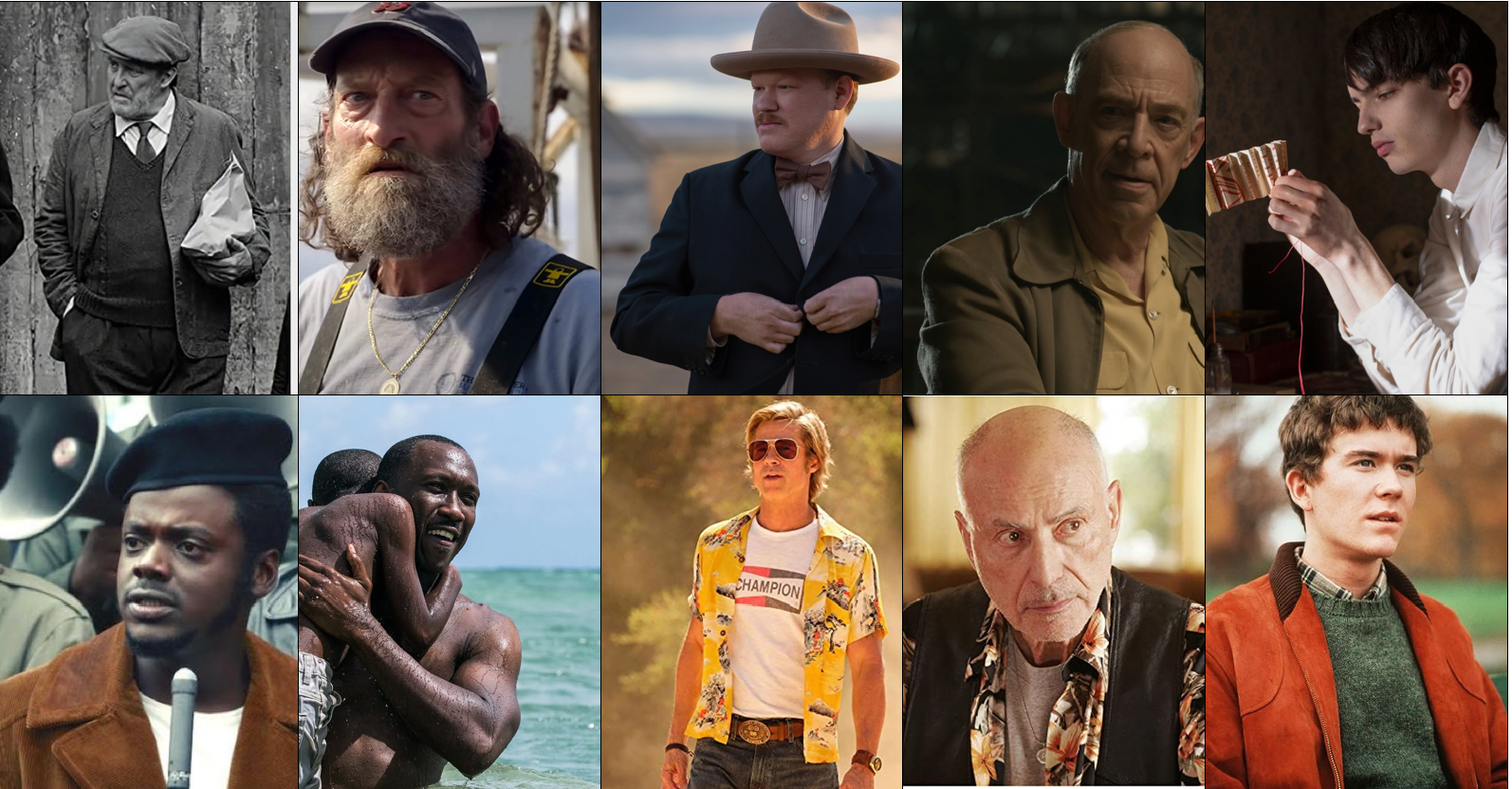
Ciaran Hinds for Belfast, introduced by Daniel Kaluuya (last year’s winner for Judas and the Black Messiah)
There really isn’t any great fit for Daniel Kaluuya to present to (and not just because of the lily white lineup). Kaluuya won for a bombastic, lead performance of a historic crusader. This Supporting Actor lineup is filled mostly with introverts trying to get by in a harsh world (plus J.K. Simmons). It seems odd to give London born Kaluuya the task of introducing Belfast star Ciaran Hinds. Still, it could make for an interesting reach across the aisle, specifically as Belfast deals with director Kenneth Branagh’s personal experience in the Irish Troubles.
Troy Kotsur for CODA, introduced by Mahershala Ali (2016’s winner for Moonlight)
Kotsur’s Frank is an actual Father, while Ali’s winning role as Juan in Moonlight was just a Father figure. Yet, both performances understood the tricky and complicated nature of kindness when dealing with children. There’s an emotional throughline between the performances that feels potent. Additionally, Ali is great at giving loving, thoughtful speeches and tributes.
Jesse Plemons for The Power of the Dog, introduced by Brad Pitt (2019’s winner for Once Upon a Time in Hollywood)
How much fun is Brad Pitt at an awards show? I’m not ready for another Oscars without him (nor is Yuh-Jung Youn). It’s hard to say what task was harder, finding a way to incorporate Pitt or finding a presenter for Jesse Plemons. Sure, Plemons has worked with previous winners Christian Bale and Mark Rylance, but no one would say they have iconic screen chemistry. Plemons’ character in The Power of the Dog is more than a “supportive husband” or “put-upon brother.” He’s a soulful family member who can’t seem to untangle the interpersonal mess his marriage has wrought. Similarly, Pitt’s Cliff Booth is a soulful friend who can’t seem to untangle himself from his best buddy, Rick Dalton (Leonardo DiCaprio).
J.K. Simmons for Being the Ricardos, introduced by Alan Arkin (2006’s winner for Little Miss Sunshine)
Both have made careers of playing vaguely funny, crotechty men. It’s less that Simmons’ Being the Ricardos performance recalls Arkin’s Little Miss Sunshine winning, heroin-addicted Grandpa. It’s more that this nomination feels like the similar lazy, afterglow nomination that Arkin received for Argo.
Kodi Smit-McPhee for The Power of the Dog, introduced by Timothy Hutton (1980’s winner for Ordinary People)
It’s only fair that the record holdest for youngest Supporting Actor winner presents the second youngest Supporting Actor winner. After all, Hutton knows how to play a sensitive twink (okay, twunk) who people just don’t understand.
BEST SUPPORTING ACTRESS
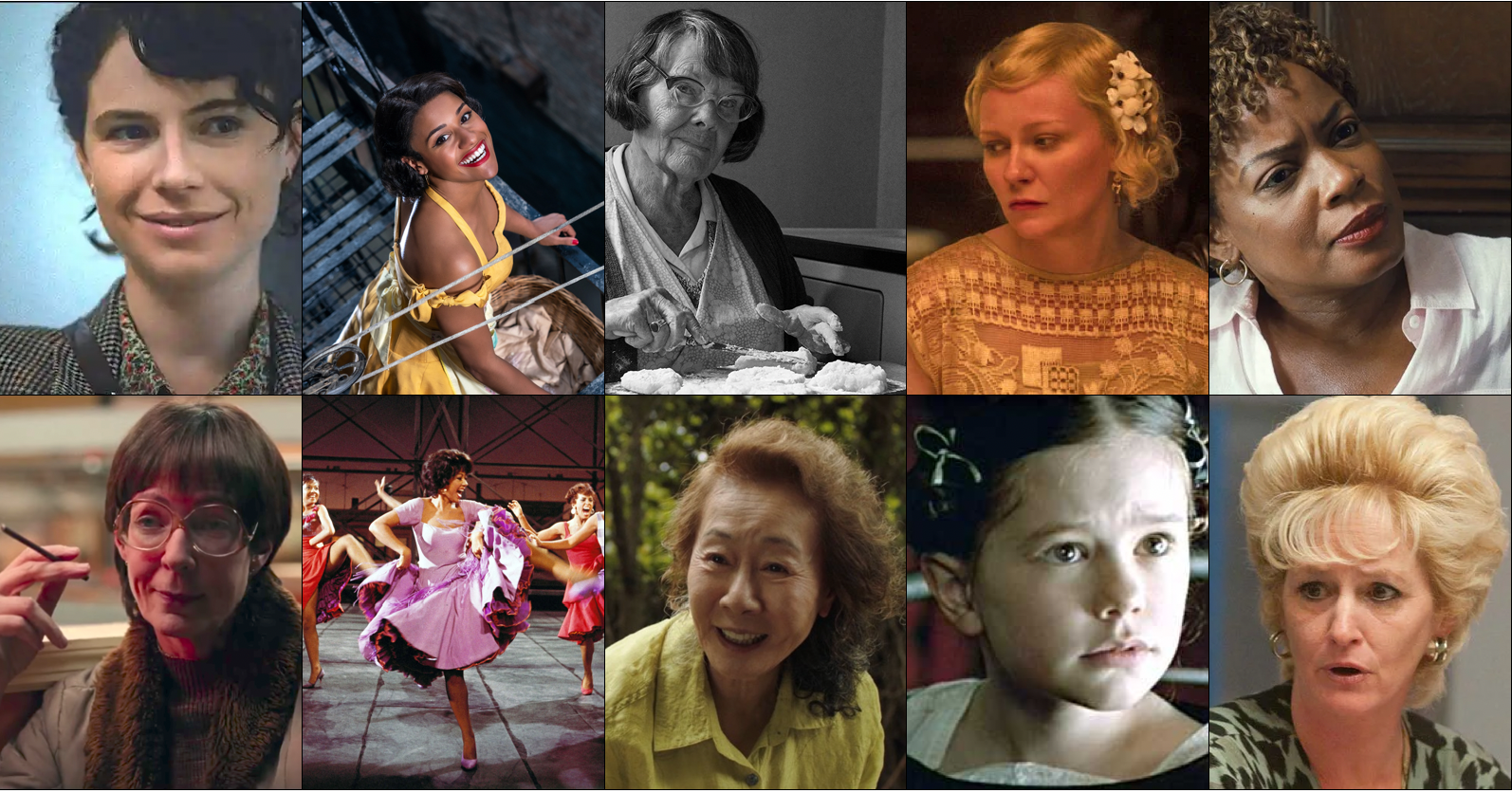
Jessie Buckley for The Lost Daughter, introduced by Allison Janney (2018’s winner for I, Tonya)
Once again, Laurie Metcalf should’ve won and then introduced her, but oh well. Janney may not be the most monstrous Mom who won this category (a Mo’nique introduction would be incredible). However, she’s the most recent example and feels like the exact person that a casual Oscar viewer would love to see back on the screen for a few minutes.
Ariana DeBose for West Side Story, introduced by Rita Moreno (1961’s winner for West Side Story)
Yeah, this doesn’t need any explanation. By far the easiest producing choice.
Judi Dench for Belfast, introduced by Yuh-Jung Youn (last year’s winner for Minari)
The Grandma connection is very obvious. Yes, Dench likely won’t attend the Oscars. In any case, this could just be another great victory lap for Yuh-Jung Youn. Who would deny her that?
Kirsten Dunst for The Power of the Dog, introduced by Anna Paquin (1993’s winner for The Piano)
It’s only fair that the last person Jane Campion directed to a supporting actress win passed on the luck to Kirsten Dunst. Sure, there are other long-suffering Moms who have won this category, but Dunst’s Rose stands out from the crowd, even as she fades in. One could see her bristling with Paquin’s Flora and her character’s tempestuous and assertive energy. No two Campion characters are the same, but they possess similar levels of depth and levels of commitment from the actor.
Aunjanue Ellis for King Richard, introduced by Melissa Leo (2010’s winner for The Fighter)
Venus and Serena Williams are quite a bit more famous than Dicky Eklund. Still, Leo and Ellis both play mothers who act as surrogate coaches and support systems for their talented kids. Both Dicky and Leo’s Alice are a lot more flawed than the Williams family. Yet, Leo could highlight some of the ways that Aunjanue Ellis subverts the “supportive wife/mother” stereotype in King Richard.
Who would you want to introduce each of the acting nominees for this year? Let us know in the comments below.